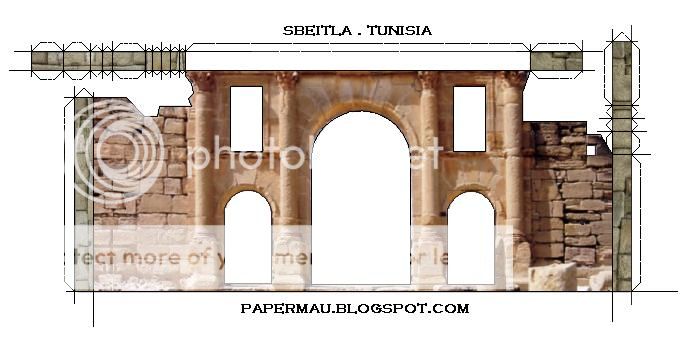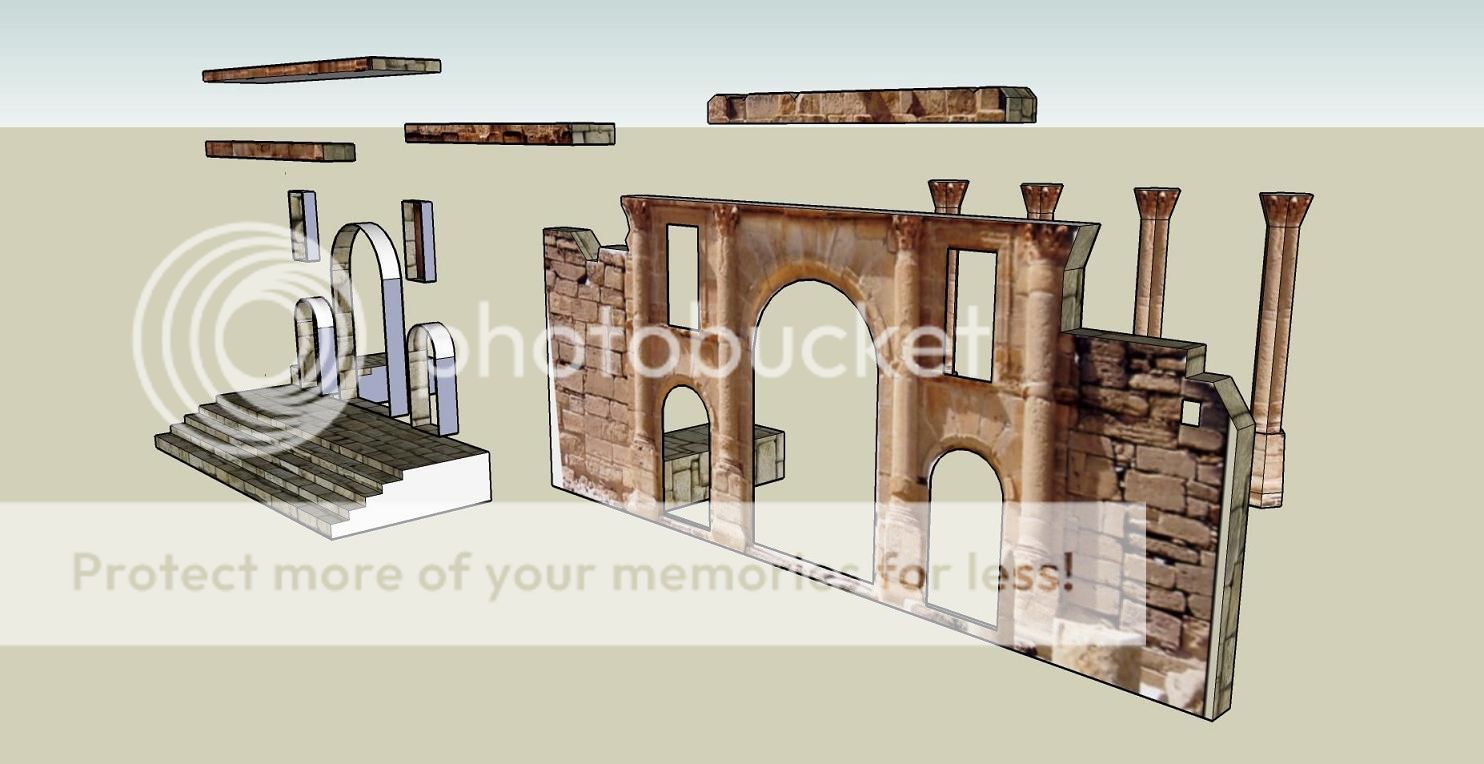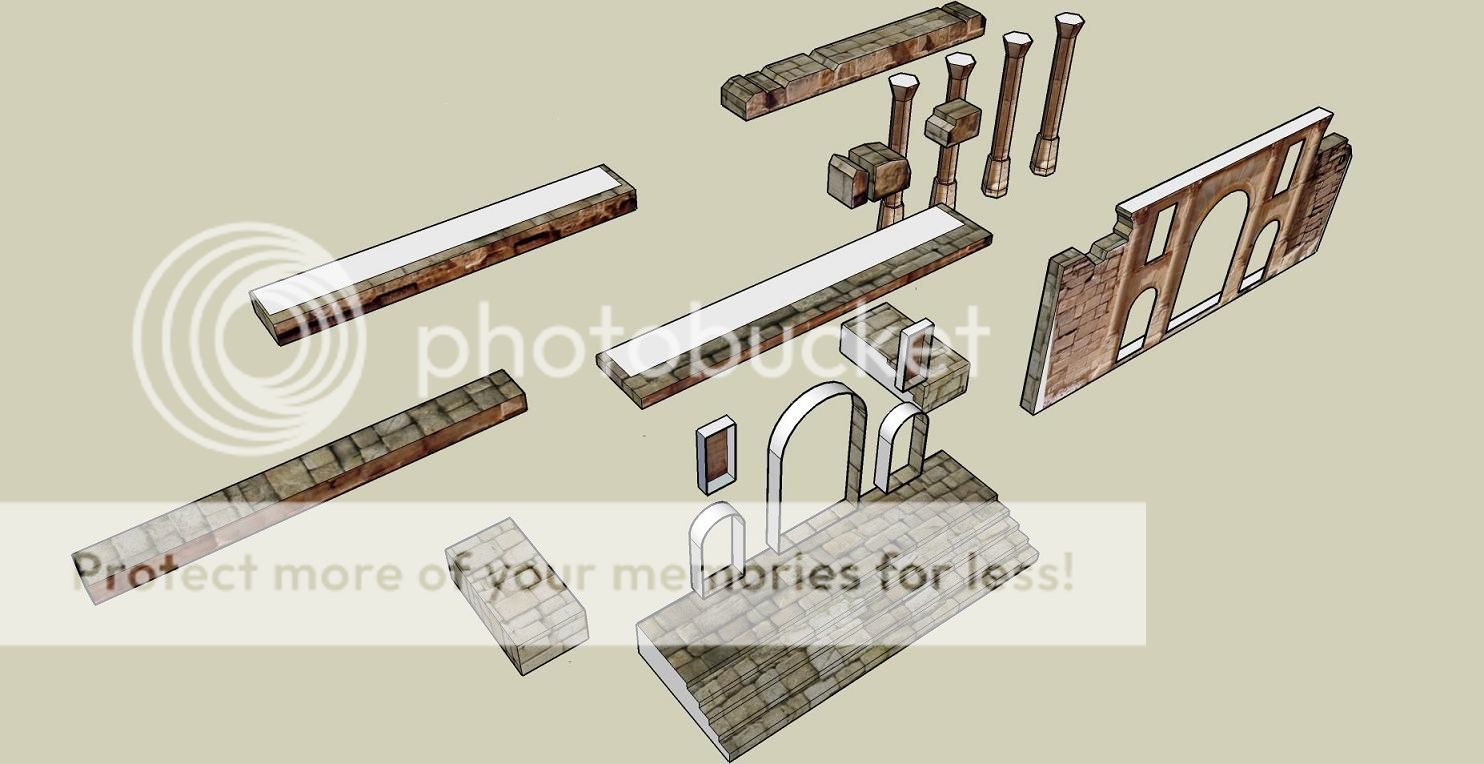Uma bela catedral em escala 1/200. Ocupa o espaço de meia folha de papel A4. Ótima para decorar a estante.
Originating in 12th century France and lasting into the 16th century, Gothic architecture was known during the period as "the French Style," (Opus Francigenum), with the term Gothic first appearing during the latter part of the Renaissance. Its characteristic features include the pointed arch, the ribbed vault and the flying buttress.
Gothic architecture is most familiar as the architecture of many of the great cathedrals, abbeys and churches of Europe. It is also the architecture of many castles, palaces, town halls, guild halls, universities and to a less prominent extent, private dwellings.
It is in the great churches and cathedrals and in a number of civic buildings that the Gothic style was expressed most powerfully, its characteristics lending themselves to appeal to the emotions. A great number of ecclesiastical buildings remain from this period, of which even the smallest are often structures of architectural distinction while many of the larger churches are considered priceless works of art and are listed with UNESCO as World Heritage Sites. For this reason a study of Gothic architecture is largely a study of cathedrals and churches.
A series of Gothic revivals began in mid-18th century England, spread through 19th-century Europe and continued, largely for ecclesiastical and university structures, into the 20th century. - Wikipedia
Com o gótico, a arquitetura ocidental atingiu um dos pontos culminantes da arquitetura pura. As abóbadas cada vez mais elevadas e maiores, não se apoiavam em muros e paredes compactas e sim sobre pilastras ou feixes de colunas. Uma série de suportes que eram constituídos por arcobotantes e contrafortes possuíam a função de equilibrar de modo externo o peso excessivo das abóbadas. Desta forma, imensas paredes espessas foram excluídas dos edifícios de género gótico e foram substituídas por vitrais e rosáceas que iluminavam o ambiente interno.
O estilo gótico ficou marcado em muitas catedrais europeias, entre elas a de Notre-Dame, Chartres, Colônia e Amiens, a maioria classificada como Patrimônio Mundial da UNESCO. - Wikipedia
Link: French.Gothic.Cathedral.by.Jump.If.Not.Zero



